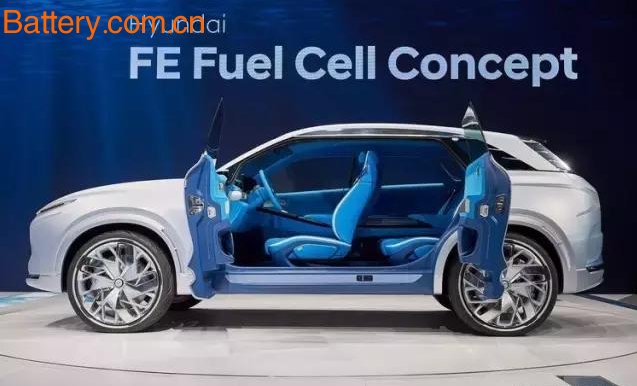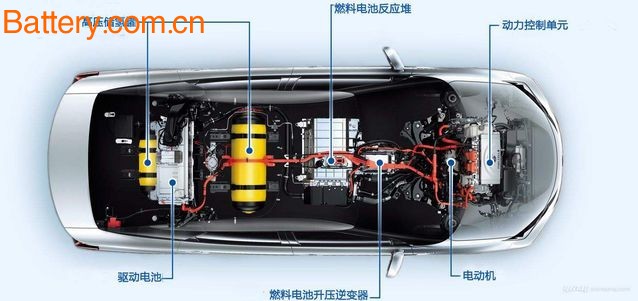We know that China has subsidies for three new energy vehicles, namely pure electric vehicles , plug-in hybrid vehicles and fuel cell vehicles . Among them, hydrogen fuel-based fuel cell vehicles have the highest subsidies, so why is the street almost invisible to a fuel cell? This kind of new energy vehicle that has been known for a long time is actually undergoing various changes. From the initial optimism to the gradual decline, to the recent "dead loyalty powder" from Honda, Toyota, Hyundai, to new players such as GM, BMW, and even technology giants such as Amazon have returned to embrace. The fate of fuel cell vehicles can also be described as twists and turns. What exactly is this for? Which roads will fuel cell vehicles take in the mainstream market in the future? Should Chinese companies join the battle for the Japanese-Korean giants? [From the dream to the dead, why is the hydrogen fuel cell a "smile"? 】 To explain these problems, we must first look at the rise and decline of fuel cell vehicles. The first thing to understand is that fuel cell vehicles are not only hydrogen-fueled vehicles, but also vehicles with other fuel types such as methane. However, because of the high stability and low pollution of hydrogen fuel, civilian vehicles are mainly based on hydrogen fuel vehicles. Compared to pure electric vehicles , hydrogen fuel cell vehicles FCV has an extremely significant advantage. Because its power generation logic is converted into electricity by internal conversion of non-polluting fuel into electric energy, its consumables are not electricity but gaseous fuel. This also allows fuel cell vehicles to be filled as fast as fuel, without having to wait as long as an electric car. On the other hand, fuel cell vehicles are not equipped with lithium batteries , which will not cause serious post-contamination of the environment after the battery has reached the service life, and fuel cell vehicles can increase fuel storage space and storage density, resulting in a much longer life than pure electric vehicles . Mileage. With so many advantages, fuel cell vehicles have once become the darling of the industry and capital. Japanese car companies especially prefer breakthroughs in this field, and Hyundai is closely following the strong cooperation of the Korean government. At present, Toyota Mirai, Honda Clarity and Hyundai ix35FC are the three most important commercial fuel cell vehicles. Toyota's fuel cell vehicle launched in 2014 But the good times are not long. Shortly after the strong growth of fuel cell vehicles in 14 and 15 years, the industry began to discuss extensively how strong the true operability of this form of new energy vehicles is. As we can see everywhere, gas stations and electric piles are not difficult to achieve, but hydrogen refueling stations are not necessarily. On the one hand, behind the hydrogen refueling station, it is supported by a complete set of hydrogen energy production and transportation networks, and most countries in the world have no willingness and space to vigorously develop a system of non-common energy. In particular, the conversion rate of hydrogen energy is low, and it causes pollution in energy production. On the other hand, the construction requirements and cost of the hydrogen refueling station itself are extremely high, and special cryogenic equipment is needed to meet the energy storage needs. At present, only Japan, South Korea and California have more hydrogen refueling stations, and this is actually more than dozens. As a result, fuel cell vehicles were once regarded as a false proposition by the world's mainstream automobile industry. Musk publicly laughed at the fact that hydrogen energy has no future. But recently, this situation seems to have turned a corner. The giants of car companies and technology companies seem to have begun to look back on the true love of fuel cell vehicles. [The giants have turned back to regain their old love, why did FCV suddenly renew its second spring? 】 Time to enter 2017, the original somewhat quiet fuel cell car market seems to have suddenly recovered. For example, Hyundai announced plans to introduce a new hydrogen fuel cell SUV during the 2018 PyeongChang Winter Olympics. It is said that the model will surpass the current FCV model in terms of sports power efficiency and mileage, and the weight of the fuel equipment will be lighter. For example, Toyota, Honda and Nissan announced an agreement to jointly promote the construction of the Japanese hydrogen refueling station with the energy company. GM and Honda announced that the joint venture fuel cell system manufacturing company (FCSM) company has entered the real stage of operation. On the other hand, hydrogen fuel cell manufacturer Plug said that Amazon will acquire the company's 23% stake in the company, while Plug will supply fuel cells for Amazon's warehouse forklifts. All kinds of signs seem to show that the fuel cell cars that have been "snow" are starting to move again. In particular, it has regained the attention of the giants. Why is this? The answer may come from two aspects. First, the upgrade of pure electric vehicle battery technology, which has been highly anticipated, has continuously encountered bottlenecks. The two factors, too short driving distance and long charging time, still restrict the prospects of new energy vehicles. FCV has natural advantages in these two fields. In the view of the car giants who have no one, no one, more people, it is perhaps the meaning of the title to regain the love of FCV. On the other hand, the cost performance of fuel cell vehicles in various fields is increasing. The cost of production of originally expensive fuel cell vehicles is experiencing a rapid decline. Compared to the competitive mid- to high-end pure electric vehicles, the 5-minute fuel-filled experience and the mileage of more than 500km are certainly more attractive. [bypassing the civilian car, the future of fuel cells may go this way] But even then, it can only be said that the giants began to consider a possibility that was originally mentioned after the pure electric vehicle energy continued to be unable to break through. After all, apart from California, I am afraid that there is no place in the world that can use fuel cell vehicles very well. But we may see another sign from Amazon's injection of Plug. That is, in addition to civilian vehicles, perhaps fuel cell vehicles have a wider use of space and application scenarios. For example, the biggest problem of fuel cell vehicles is that hydrogen charging stations are not easy to find, but the advantage is that the charging time is very fast, and the pure electric has better mileage and consumption rate. This feature may be particularly suitable for long-distance buses, and the bus itself has a fixed route to return to a specific location to refuel. The energy consumption of the bus is very large, and the electric bus charging time is very long. Fuel cell vehicles may just be able to make up for this problem. And the advantages of mileage and wear can be effectively applied to long-distance passenger transport and freight. And this is also the area that many domestic companies are currently focusing on. In addition, the way Amazon uses fuel cell vehicles in specific scenarios can be worth exploring. Fuel cell vehicles are energy efficient and pollution free. The value of the role in rush, airport, factory and other specific scenarios is also great. Especially for the new logistics distribution industry that wants to balance efficiency and energy, there is obviously more room for upgrade. Finally, the smart city that builds hydrogen energy support is gradually becoming a hot topic. Cities with hydrogen as a kinetic energy can of course provide better fuel support for vehicles. This trend may be far away, but it may become one of the standard cities in the future. Training Resistance,Resistance Bands With Handles,Exercise Bands With Handles,Exercise With Resistance Tube nantong pinli fitness co.,ltd , https://www.ntcnpinlifitness.com


